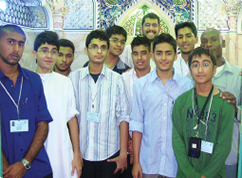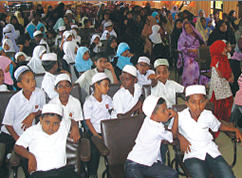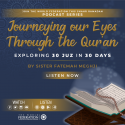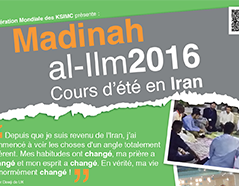The World Federation is pleased to announce the launch of its updated and improved iSistani app, which is available immediately to download from the iTunes Store or through Google Play now.
On Thursday 20th June 2019, the first ever North American Muballigheen Seminar was held by The World Federation Islamic Education department in collaboration with NASIMCO. The seminar, which was hosted by the ISIJ of Toronto, aimed to bring together the North American Muballigheen of the community to:
1) discuss key spiritual challenges facing the community in North America;
2) formulate strategies for working together more effectively to meet these challenges; and
3) identify the support required from the WF to further Tableegh in North America.
Following a welcome address by the Director of Centre (Mukhi) ISIJ of Toronto, Al Haj Akil Karim, the WF Secretary General, Shan E Abbas Hassam, gave a short talk WF Secretary General, Shan E Abbas Hassam gave a short speech. After welcoming all of the Mubaligheen to the seminar, Shan E Abbas spoke about the needs of our community.
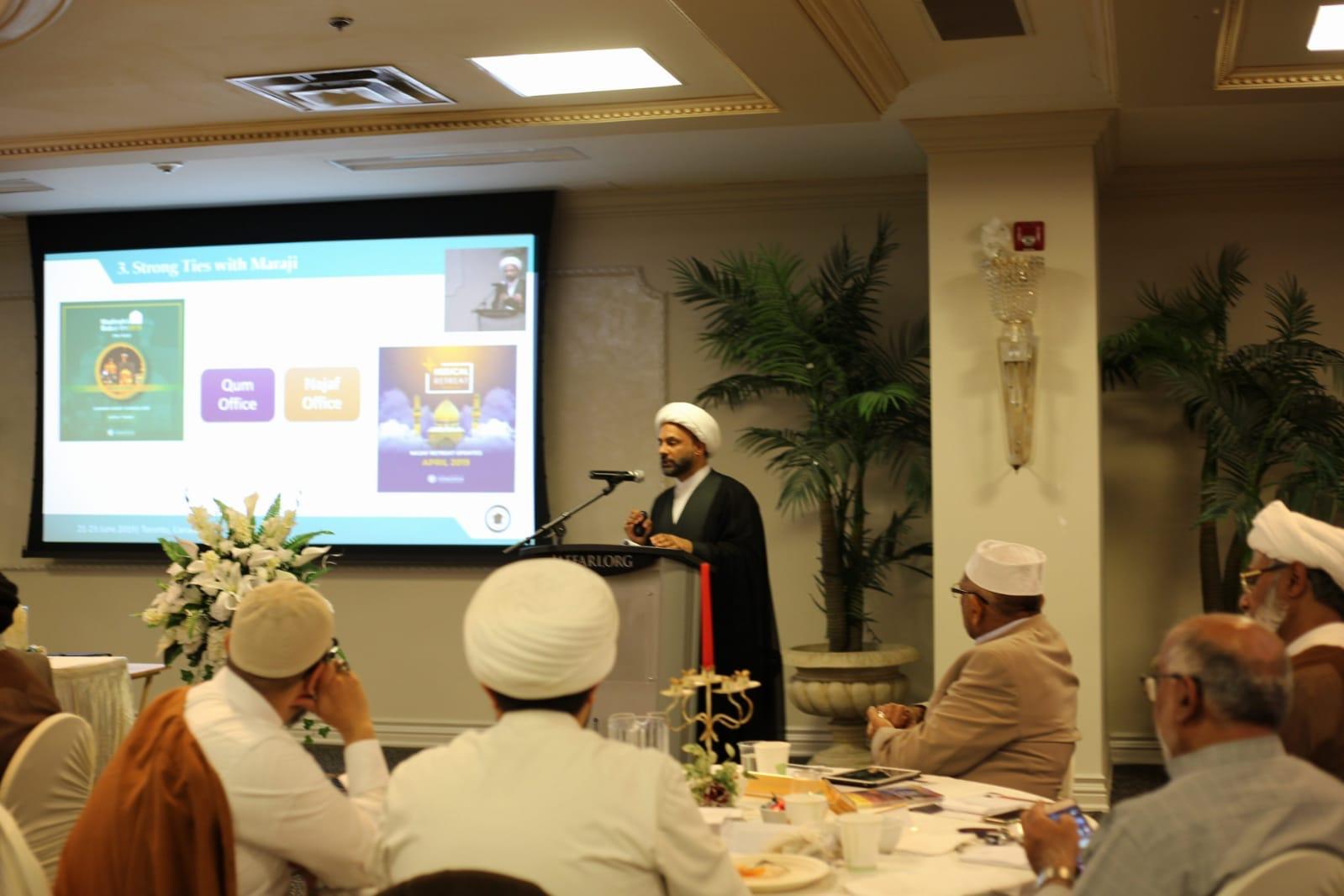
He said that our community is crying out for spiritual knowledge and Islamic guidance. In fact, the Project North Star survey, which was conducted all around the world and included people of all ages and backgrounds, concluded that two of the top three needs amongst our community members are spiritual development and Islamic knowledge. He noted that in this current climate, when our community is facing threats such as Islamophobia, it is important for us to come together and overcome these challenges.
As a 34-year-old youth but also community leader, he went on to pose 5 questions:
- Is the current structure serving the spiritual needs of our community? Are we collectively facilitating spiritual growth;
- Is the format of the monologue Majlis attracting our youngsters or even maintaining our youths’ attention?;
- Is the growth of oneline streaming and even in on-demand lectures via sites like Youtube a threat that will mean current/future generations will utilise our sprawling and ever expanding centres a lot less?;
- What can we do to quench the thirst of our well meaning, well intentioned youngsters who want more support and more availability of information and exchange of ideas;
- How can we leverage IT to provide our youngsters will online information, online webinars, online Tafseer classes for example?
He said there is much more to be discussed and said the presence of so many Mubaligheen from so many places coming together to discuss this means a lot. He concluded by saying 'We won’t be able to tackle all the issues, we won’t even be able to discuss them but even if we make a start together – that too will be a big collective leap'.
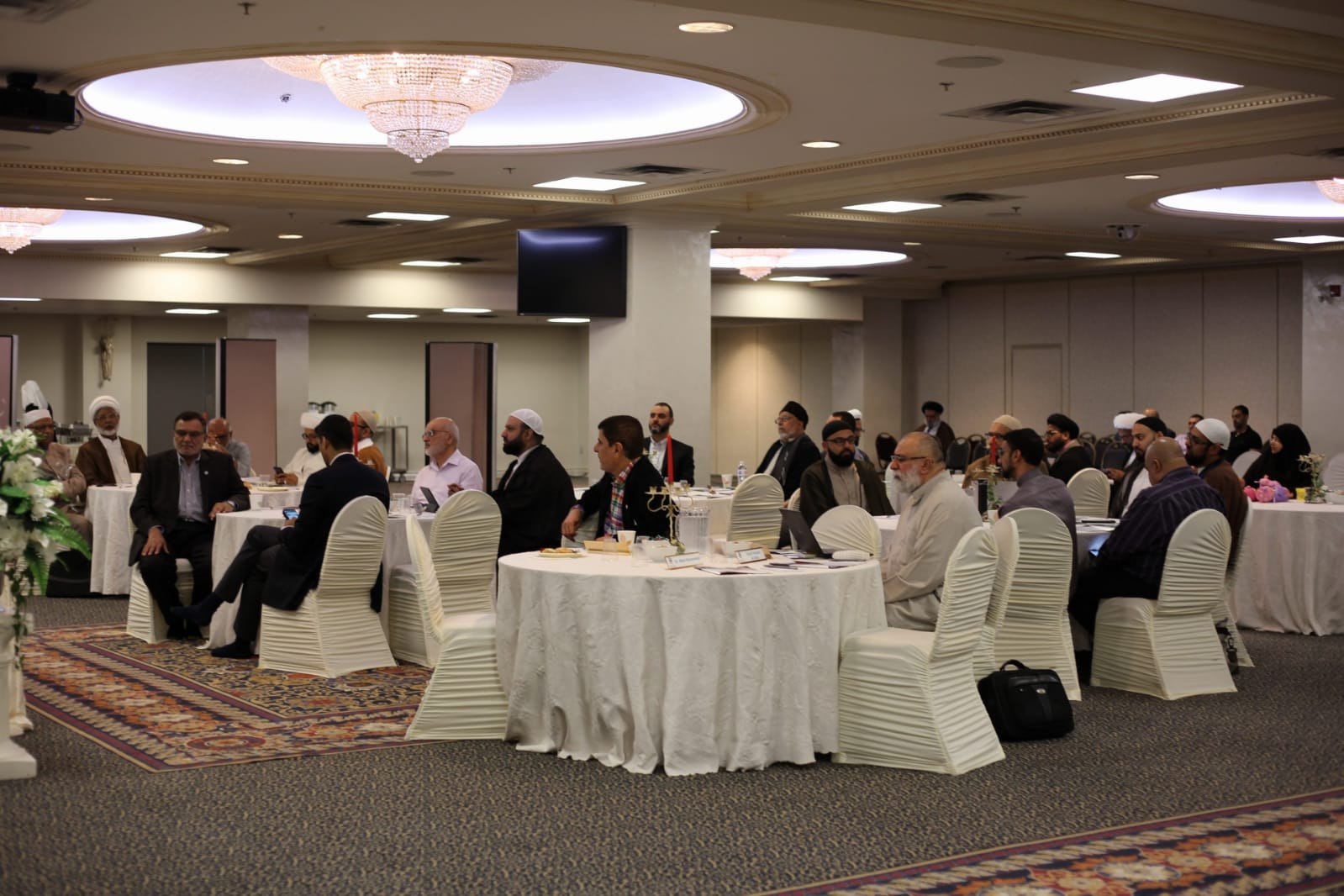

Shaykh Mohammed Ali Ismail, the Deputy Head of the WF’s Islamic Education department, then made a presentation on IE’s Strategic Plan and updated the attendees on the progress of IE’s main projects. Shaykh Mohammed Ali’s presentation began with an explanation of the structural expansion at IE and then covered IE’s work in light of six key concepts:
1. Modern Digital Services
The new Digital Services function of IE has to date created 54 videos on various topics, such as the Characteristics of Imam Ali (as). Most recently, it launched the Shi‘i Theology, Ethics and Practice Series (STEPS). Shaykh Mohammed Ali took the opportunity to play samples of the latest videos. You can find out more about STEPS and watch out videos here.
2. Pertinent Research
Shaykh Mohammed Ali then spoke about IE’s Academic Board, which assesses book proposals, supervises the Research Section of our Qum Office, and oversees the forthcoming Dedicated Fiqh Page.
3. Strong Ties with Maraji
Through our offices in Qum and Najaf, strong ties have been maintained with the Maraji. These offices hold various educational courses such as the Madinah and Bab al-Ilm Short Course, which is now in its 17th year, and the Nurses and Medical Practitioners Retreat, which was held in Najaf in April.
4. Raising Spirituality, Knowledge and Skill Levels
IE is continuing its work on the Scholar Database Project, which aims to enlist the capacity and skills of scholars across the global community. The India Office partnered with India Federation in holding the Madrasah Centre of Excellence’s Teacher Skills Programs. Furthermore, with the MCE, the Spiritual Development Programme for Madrasah Teachers will soon start. The iSistani app, launched earlier this year, incorporates three of His Eminence’s (may Allah protect our scholars) works on Fiqh. And the Khums Seminar held in London in May provided guidance on how Khums is to be calculated in light of recent changes in the rulings.
5. Tableegh in Diverse Range of Communities
The WF works in various countries, and in the last six months the External Tableegh Coordinator visited Bosnia, Kosovo, Nepal, Bangladesh, Philippines, and South Africa, France, and Germany. Shaykh Mohammed Ali briefed the attendees on the projects being undertaken by the WF in these countries.
6. Improved Publishing
To date, the WF has published 75 titles. In the IE Strategic Plan, eight stages have been charted out for all WF publications to go through to ensure that high standards are met. Six titles are currently being worked on, including a French translation of a work on Shi‘i traditions.
The rest of the day consisted of scholarly presentations and discussions on important topics relating to Tableegh and Islamic education in North America. In total, nine papers were presented under three themes, as follows:
|
Theme One: Internal Tableegh in North America: Challenges and Opportunities |
|
Paper One: Burning Issues Facing the Community – Sh. Murtadha Alidina |
|
Paper Two: Burning Issues Facing North American Shia Communities – Maulana Syed Muhammad Rizvi |
|
Paper Three: Presenting Orthodox Islam to Millennials in North America: Challenges and Opportunities – Syed Hassan Rizvi |
|
Group Discussion on Theme One: What strategies do we need to implement to address the spiritual challenges facing our communities in North America? |
|
Theme Two: External Tableegh in North America: Challenges and Opportunities |
|
Paper Four: The Impact of External Tableegh in North America – Dr Liyakat Takim |
|
Paper Five: Interfaith and Humanitarian Approaches – Sh. Shafiq Huda |
|
Paper Six: Making Use of Current and Emerging Technologies in Tableegh – Sh. Saleem Bhimji |
|
Group Discussions on Theme Two: How can Muballigheen in North America better coordinate external Tableegh efforts? |
|
Theme Three: Islamic Religious Education and Youths: Latest Approaches & Experiences |
|
Paper Seven: Experience of Working with the Youths in North America – Sh. Vinay Khetia |
|
Paper Eight: Opportunities and Challenges of an Islamic School Education: A Case Study – Sh. Salim Yusufali |
|
Paper Nine: Conducting Online Courses: Benefits and Challenges – Sh. Hasanayn Kassamali and Zakira Tahera Kassamali |
|
Group Discussion on Theme Three: What strategies do we need to implement to help us improve the religious education of young people in North America and address the challenges they are facing? |
Related News
This Mahe Ramadan we are pleased to announce our daily Ramadan podcast initiative of 'Journeying our eyes through the Qur’an - Exploring 30 Juz in 30 Days!'
Learn how you can listen to each Juz here.
The World Federation is pleased to introduce a series of videos to help us acquire closeness to Allah (swt). The first 5 videos will be an Introduction to Shahr Ramadan and for the rest of the Holy month we will focus on Akhlaq. Click here to watch Day Eight.






